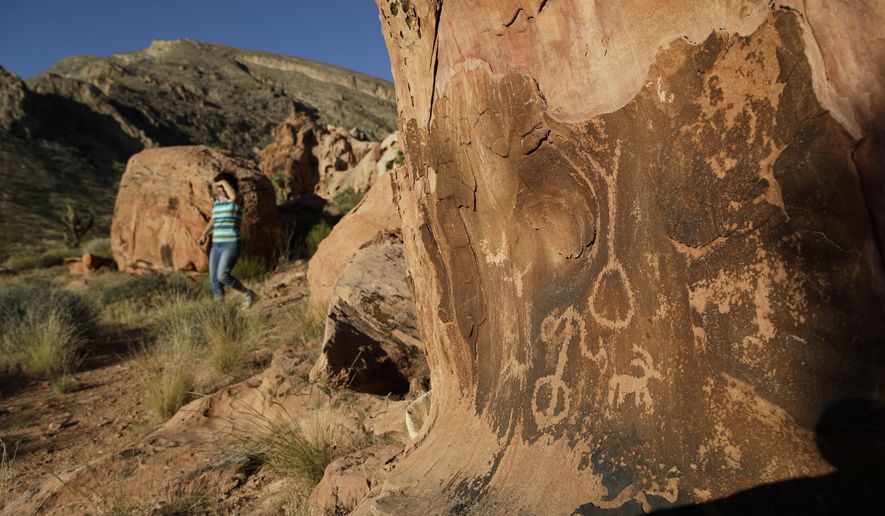A key House panel Wednesday evening cleared a bill to rein in presidents’ authority to create national monuments, striking a major blow at the heart of a power used extensively by former Presidents Bill Clinton, George W. Bush and Barack Obama — often over the objections of locals.
On a party-line vote of 23 to 17, the House Natural Resources Committee passed the National Monument Creation and Protection Act, the first significant change to monument law in over a century. The bill, expected to pass the GOP-led House, overhauls the 1906 Antiquities Act and sets new limits on what land can be designated as a monument and lays out the level of consultation that must take place between the federal and local governments during the process.
“Overreach in the recent administrations has brought us to the point that it is Congress’ duty to clarify the law and end the abuse,” Rep. Rob Bishop, Utah Republican and committee chairman, said Wednesday just before the measure was passed. “It corrects the [Antiquities] Act’s flaws and the process that has allowed unintended consequences.”
Those unintended consequences have come in the form of huge swaths of land set aside as national monuments to cordon them off from energy exploration and other activities such as recreation, hunting, and logging. The Antiquities Act says that a president must limit monument designations to the smallest area compatible with the object that need to be protected, but recent presidents have stretched that definition to the breaking point.
Mr. Obama, for example, set aside a whopping 553 million acres of land as national monuments, the most of any president. Mr. Bush also used the act to protect massive areas of both land and sea.
The House legislation comes amid a review of recent monument designations by Interior Secretary Ryan Zinke, who has recommended to President Trump that a handful of monuments — most notably the sprawling Bears Ears National Monument and Grand Staircase-Escalante National Monument, both in Utah — be drastically cut down in size.
Mr. Bishop’s legislation gives presidents explicit authority to reduce monuments’ size, putting an end to the murky legal area of whether a monument can be cut.
In addition, the bill requires detailed environmental reviews for any monument proposals over 640 acres.
For monuments over 85,000 acres — such as Bears Ears, which is well over 1 million acres — the federal government would be required to get approval from county commissioners, local governments, state officials, and other stakeholders. Such local buy-in, critics have said, was sorely lacking from many past monument designations.
In addition, the legislation prohibits a president from designating natural geographic features, such as the Grand Canyon, as monuments, and instead limits monuments to fossils, relics, artifacts, human or animal skeletal remains, or buildings and other man-made structures.
Democrats and environmental groups say the measure erodes public lands. Rep. Raul Grijalva, Arizona Democrat, and his party’s ranking member on the Natural Resources Committee, argued the bill “essentially destroys the Antiquities Act.”
“House Republicans have not placed value in the public lands,” he said.
Green organizations contend that Mr. Bishop, his fellow Republicans and the Trump administration simply want to open up federal lands for coal mining and oil drilling.
“There’s no public support for this kind of radical legislation. Bishop’s only motivation is greed. He’s offering a gift to the fossil fuel, mining and timber industries and expecting something in return,” said Randi Spivak, public lands director at the Center for Biological Diversity.
But Republicans counter that nothing in the bill prohibits lands from being protected. Monuments can still be created, but their size would be limited, as the Antiquities Act intended. More importantly, they say, the bill requires local support in the hopes of avoiding situations like the ones seen in Bears Ears and Grand Staircase, where local officials were deeply opposed to the actions of the Obama and Clinton administrations, respectively.
“When a president unilaterally designates one of these and it’s done without local consensus, that’s an abuse. And this bill is preventing the abuse that’s happened,” said Rep. Doug Lamborn, Colorado Republican.
• Ben Wolfgang can be reached at bwolfgang@washingtontimes.com.




Please read our comment policy before commenting.